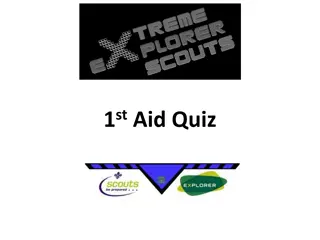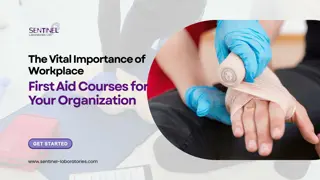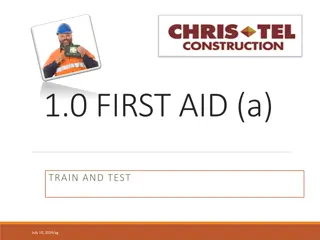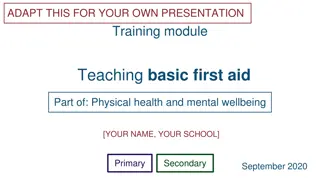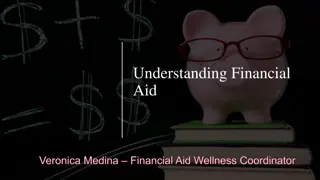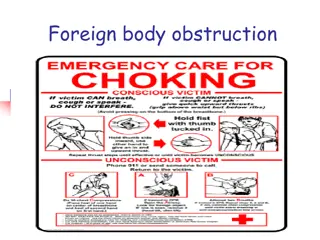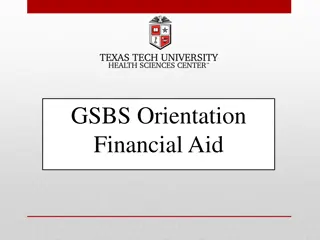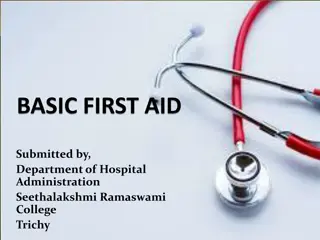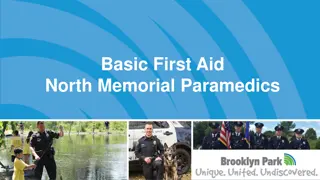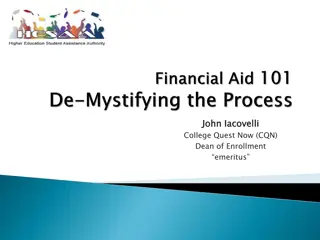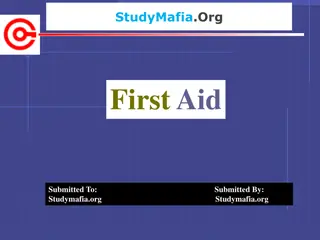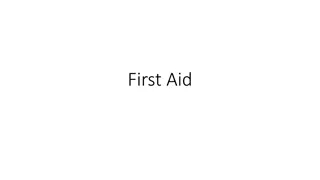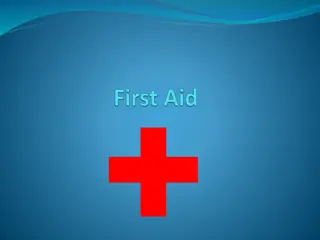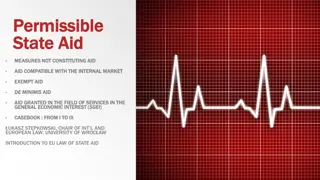Choking First Aid Techniques and Procedures
Learn essential choking first aid techniques and procedures for adults and children, including abdominal thrusts and CPR. Understand how to identify different levels of obstruction and respond effectively to prevent a potentially life-threatening situation. Be prepared to act promptly and appropriately in case of choking emergencies to ensure the safety and well-being of those around you.
Download Presentation

Please find below an Image/Link to download the presentation.
The content on the website is provided AS IS for your information and personal use only. It may not be sold, licensed, or shared on other websites without obtaining consent from the author.If you encounter any issues during the download, it is possible that the publisher has removed the file from their server.
You are allowed to download the files provided on this website for personal or commercial use, subject to the condition that they are used lawfully. All files are the property of their respective owners.
The content on the website is provided AS IS for your information and personal use only. It may not be sold, licensed, or shared on other websites without obtaining consent from the author.
E N D
Presentation Transcript
Value Added Value Added Mahatma Gandhi Mission MGM MGM Course Course SKILLS LAB SKILLS LAB MGM BLS MGM BLS
AMERICAN COLLEGE OF SURGEONS AND ATLS(I) ACCREDIATED ATLS & ATCN AMERICAN COLLEGE OF SURGEONS AND ATLS(I) ACCREDIATED ATLS & ATCN
ADULT AND CHILD CHOKING ADULT AND CHILD CHOKING
Choking is a common but highly preventable cause of cardiac arrest. Mild obstruction- if the Individual is breathing, wheezing and coughing, stay with them and encourage them to stay calm and cough. Severe obstruction- if the individual jas little to no breathing and is making little to no noise, use the Heimlich maneuver amd call EMS. In unresponsive individuals behin the BLS procedure.
Abdominal thrusts for an adult or child Abdominal thrusts for an adult or child If you think someone is choking, ask, Are you choking? Can I help you? If the person nods yes, tell them you are going to help. Stand firmly or kneel behind the person (depending on your size and the size of the person choking). Wrap your arms around the person s waist so that your fists are in fron. Make a fist with one hand. Put the thumb side of your fist slightly above the belly button and well below the breastbon. Grasp the fist with your other hand and give quick upward thrusts into the abdomen Give thrusts until the object is forced out and the person can breathe, cough, or speak, or until they become unresponsive. If the person who has a severe airway block is pregnant or very large, give chest thrusts instead of abdominal thrusts If you can t wrap your arms fully around the waist, give thrusts on the chest (chest thrusts) instead of on the abdomen Put your arms under the armpits and your hands on the lower half of the breastbone Pull straight back to give chest thrusts
Choking Adult and Child Who Becomes Unresponsive Choking Adult and Child Who Becomes Unresponsive Shout for help Phone and get AED Provide CPR, starting with compressions After each set of 30 compressions, open the airway to give breaths Look in the mouth. If you see an object in the mouth, take it out Give 2 breaths and then repeat 30 compressions Continue CPR until The person moves, speaks, blinks, or otherwise reacts More advanced medical personnel arrive. Do not perform a blind finger sweep: Every time you open the airway to give breaths, look for the object in the back of the throat. If you see an object in the mouth, take it out Do not perform a blind finger sweep. This can cause the object to get lodged further back in the airway
Choking Child or Infant Who Becomes Unresponsive Choking Child or Infant Who Becomes Unresponsive A child or infant who has a severe airway block and becomes unresponsive needs immediate CPR Shout for help. Make sure the child or infant is lying on their back on a firm, flat surface. Begin CPR, phone 9-1-1, and get AED Provide CPR Give sets of 30 compressions and 2 breaths After each set of 30 compressions, open the airway to give breaths Look in the mouth. If you see an object in the mouth, take it out Give 2 breaths. The Heimlich maneuver can be performed with the victim standing or lying down. The hands are positioned slightly above the navel and well below the xiphoid process and then pressed into the abdomen with a quick upward thrust. The maneuver may need to be repeated. BASIC LIFE SUPPORT( BLS) CHECK: Scene, victim CALL : EMS, 123. CARE: A: Airway B: Breathing C: Circulation
Basic Life Support for Adults and Children Basic Life Support for Adults and Children Patient Assessment Opening the Airway Open the airway before performing rescue breathing Providing Rescue Breathing Adult and Child CPR Position yourself and the patient Choking or Airway Obstruction Managing Airway Obstruction Abdominal Thrusts Stand or kneel behind the patient.
Adult Adult basic basic life life support support
CHILD BASIC LIFE SUPPORT CHILD BASIC LIFE SUPPORT


